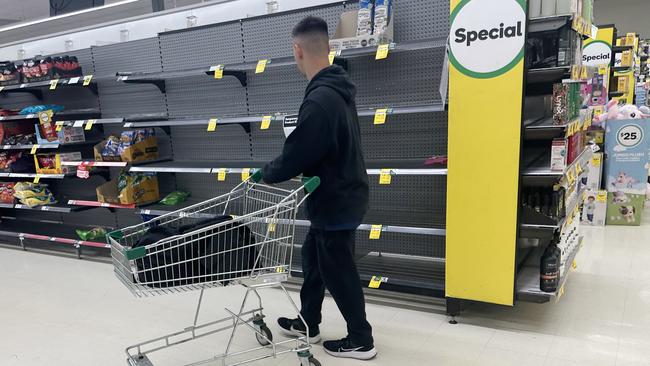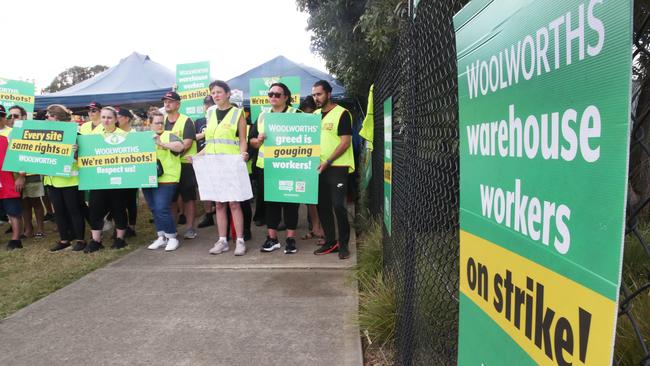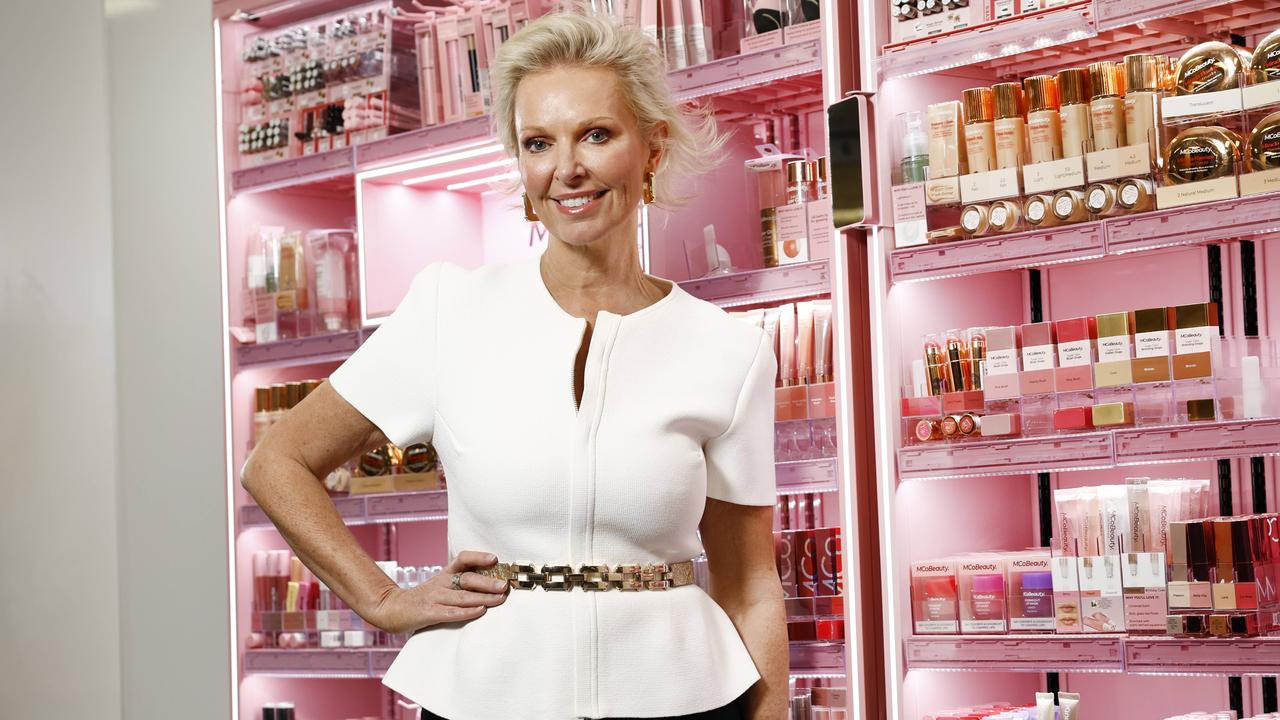Corporate Australia is trying to draw a line in the sand about large pay increases
For the sake of the economy, the battle between Woolworths and the unions over large pay increases and tracking worker productivity in warehouses is critical.

Business
Don't miss out on the headlines from Business. Followed categories will be added to My News.
A near two-week run of empty supermarket shelves inevitably leads to two things. Cranky customers and then a hit to earnings. For Woolworths, the first was already underway, and the second came to life early Tuesday.
The cost of the drawn out dispute between Woolies and one of its warehouse unions is so far running at $50m in lost sales, with workers on strike at three distribution centres in Victoria and one in NSW.
These warehouses are critical for supplying supermarkets right along the east coast, and this has seen empty shelves across its supermarkets, particularly for chilled food.
The strike too is being felt by Woolies spin off Dan Murphy’s, with the national liquor chain still using some of the supermarket’s warehousing.
As my colleague Ewin Hannan writes, Woolies is trying to bring the dispute to a head by applying to the Fair Work Commission to get goods back on the trucks and into the supermarkets, but there’s a bigger issue at stake and all businesses are watching closely.
The Woolies fight comes down to a fight over productivity.
Corporate Australia is trying to draw a line in the sand about pushing through large pay increases without linking this to improvements in productivity. In this case, Woolies is trying to use technology and analytics to improve output and reliability in the supply chain. The United Workers Union says no.

Woolies says the UWU is seeking pay increases at these sites in excess of 25 per cent over three years. Woolies argues this figure is “materially” above inflation. For its part, the union claims it is seeking “cost of living wage increases”.
But the dispute turned red-hot by Woolies’ attempts to measure and analyse worker output across its warehouses in return for the double-digit pay rise.
The supermarket has been trialling a new system of analytics called the Coaching Framework. These are engineering standards used in warehouses around the world to measure worker performance and find ways to refine and improve. Rival supermarkets Coles, Metcash and Aldi use the standards in form or another. Major distributer Linfox and Bevchain also use them. The new processes are not exactly pushing the boundaries.
The UWU has firmly resisted this, arguing it is an underhand way for Woolies to sack underperforming workers or those that are falling behind. Essentially, the unions want the pay rise without any measurable rates of performance – a sure fire way to stoke inflation.
In a memo sent to staff and seen by The Australian, Woolies says this simply wouldn’t work. “Managing performance is an essential part of any business, and we could not operate without it. Without clear and fair performance measures, it becomes impossible to plan and stock shelves effectively, and meet expectations reliably,” it says in the memo.
Woolies says that every week its warehousing arm is responsible for moving, stocking, and supplying over 25 million cartons of goods across our national network of stores and sites.
“We want families across Australia to have access to fresh food, drinks and everyday essentials. In order to do this, we need to understand how much work is required to meet expectations in our 1,000+ stores, and how long it would take to complete this work at a safe and sustainable pace,” the memo says.
The analytics are “an essential tool for understanding how long tasks and processes take to safely complete, so we can plan and run the business accordingly”.
And what about the union claim that worker toilet breaks are being monitored?
“Absolutely not. No one’s movements are being tracked, and the framework is not a surveillance tool,” Woolies says.

The backdrop to the fight is Australia’s alarming slide in productivity rates, which in turn is undermining the nation’s longer term prospects.
The Reserve Bank has also warned that sluggish productivity is contributing to underlying inflation, and therefore to elevated interest rates and living cost pressures. Business has been arguing Australia needs to head down a path of dynamism to create wealth for all, where its current path of re-regulation, including around labour workplace laws, is making it less attractive to invest for growth.
In terms of a business impact, the strike comes at a time when Woolies is particularly vulnerable. It has been losing ground in sales to smaller rival Coles, and its internal customer advocacy measures has fallen to the lowest point in a year.
Politicians and regulators are all over it amid claims of customer gouging. New chief executive Amanda Bardwell has had her work cut out trying to win back trust.
The disruption is driving customers even more to Coles during the crucial lead up to Christmas.
Even if the dispute was resolved today, it will still take time for Woolies to build up its inventory again.
The December period is when supermarkets should be firing on all cylinders.
Woolies might be limping to the end of the year, but for the sake of the economy, this battle counts.
Originally published as Corporate Australia is trying to draw a line in the sand about large pay increases



